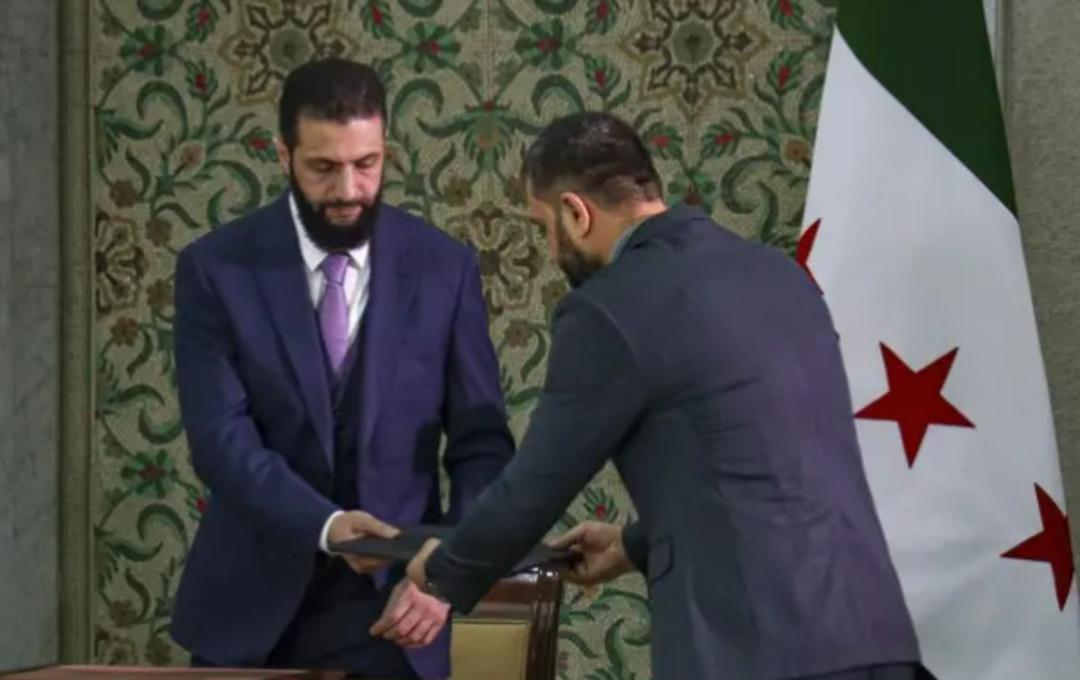-
Warnings from Human Rights Watch about the Risks of the New Syrian Constitutional Declaration

Today, Human Rights Watch expressed concern over the new Syrian constitutional declaration, which has recently been ratified and is expected to govern the country during the transitional phase. The report indicates that this declaration concentrates power significantly in the hands of the executive branch, which could undermine the independence of the judiciary.
President Ahmad al-Shara signed the declaration on March 13, 2025, granting the president expanded powers, including judicial and legislative appointments without any restrictions or oversight. These extensive powers raise concerns about the continuity of the rule of law and human rights in Syria unless effective preventive measures are adopted. The declaration justifies these exceptional powers as necessary given the country's transitional circumstances.
Adam Coogle, Deputy Director of the Middle East Division at Human Rights Watch, stated: "The absence of independent checks could lead to an overreach of executive power at the expense of fundamental freedoms during a critical time for Syria's future. It is essential to establish a system that holds all officials accountable for their violations."
Al-Shara was appointed president in late January 2025 after a conference with armed groups, where he will lead the country during a five-year transitional period, culminating in the adoption of a permanent constitution and the organization of elections based on that constitution, as outlined in Article 52 of the declaration.
The organization notes that the transitional regime may require temporary extraordinary measures, but these should not come at the expense of fundamental rights. Syrian citizens fear that the current constitutional declaration may entrench a dictatorial regime rather than facilitate a transition toward a democratic system that respects human rights.
Although the declaration emphasizes the independence of the judiciary, it lacks the necessary safeguards to ensure this independence effectively. One of the biggest concerns relates to Article 47, which grants the president the power to appoint all seven members of the "Supreme Constitutional Court" without parliamentary oversight. In the absence of mechanisms that guarantee judicial independence, the court's ability to hold the president accountable will be limited.
Moreover, Article 24 grants the president near-total control over legislative appointments, as one-third of the members of the transitional parliament are directly appointed by the president, while the other two-thirds are chosen by a committee whose members are also selected by the president.
While the declaration includes provisions that appear supportive of justice and human rights, their effectiveness remains uncertain without independent oversight. The declaration calls for the repeal of exceptional laws from the Assad era, the annulment of rulings related to terrorism cases, the restoration of expropriated properties, and the establishment of a transitional justice body to reduce impunity for war crimes.
Despite the presence of rights guarantees such as the presumption of innocence and the ban on torture, concerns persist regarding restrictions on freedom of expression, as Article 49(3) criminalizes "glorifying the Assad regime and its symbols," which could be used to curtail freedom of expression.
Al-Shara, as president, holds executive power and appoints his council of ministers, further reinforcing executive control since the parliament lacks the authority to dismiss him or approve participating ministers in the government.
Human Rights Watch urges the Syrian authorities to revise the constitutional declaration to include strong measures ensuring judicial independence and legislative oversight, which would help uphold human rights and hold accountable those responsible for past violations.
Coogle stated: "The transitional phase in Syria must be a gateway to a democratic system that respects rights, not a means to entrench an authoritarian regime."
You May Also Like
Popular Posts
Caricature
opinion
Report
ads
Newsletter
Subscribe to our mailing list to get the new updates!






















